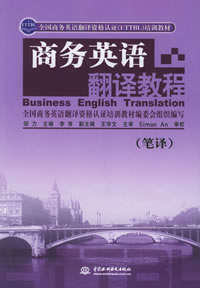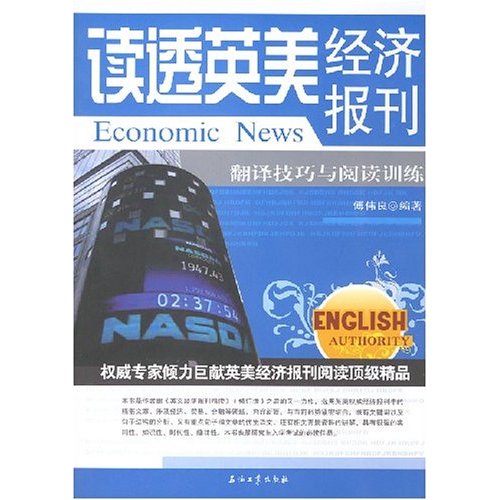揭开翻译的神秘面纱
作者:古龙 2009-07-04




语际翻译公司 转载请注明https://www.scientrans.com
∗本栏目部分文章内容来自互联网,部分已经过本站编辑和整理,如有版权事宜请联系Email/MSN jesczhao@hotmail.com
Translation Myths
Translators often face an uphill battle from misinformed clients who have misconceptions about translators and the translation profession. Many times translators have to educate the clients about the industry in order to debunk the myths that seem to keep on circulating year after year.
I've put together a list of 10 of the various myths I've encountered in my work as a translator. I hope you enjoy them. Maybe you can use them as educational tools for helping your clients understand what you do as a translator.
1. Translators are just people who can speak two or more languages.
This is one of the most prolific myths circulating outside the translation industry. Merely knowing two languages does not mean that a person can translate with those languages. Translation is so much more and non-translators are often perplexed by this fact.
2. Translators can translate any subject matter as long as the material is in a language they know.
Good translators will specialize in only a few different (but oftentimes) but related areas. This allows them to keep up-to-date on changes in their industry and keeps them abreast of current trends. Inexperienced (or bad translators) will often say they can translate anything thrown at them.
3. Translating from one language to another (i.e. Spanish to English) is the same as translating in the reverse direction (i.e. English to Spanish).
There are translators that can do a good job translating in both directions; however, the number of translators that can do this is not very high. Clients often think that translating is the same no matter which direction the translator is going. Translators have dominant languages and it is usually in the best interest of the translator and client for the translator to translate into his/her dominant language.
4. Translators can produce any translation with little or no turn-around time.
Once again, clients often believe that translation is a simple task that can be accomplished quickly. A good translator will educate the client and let them know that translators need sufficient time to produce a quality product.
5. A native speaker is always a better translator than a non-native one.
This is a myth equal in error to that of #1. Merely being a native speaker of a language does not ensure or guarantee that that person will be able to translate adequately. Translation requires discipline, study, and continual practice. A native speaker of a language does not inherently possess all (or even any) of these qualities. Clients for some reason don't seem to understand this.
6. Translators like it when the client changes their translation after it has been delivered.
After a translator has edited, revised, retranslated, and perfected a translation, do you think he/she wants it to be changed after it's delivered it to the client? Many times, a well-meaning person on the client end will think that the translator has incorrectly translated something in the translation. Nearly 99% of the time, however, their good intentions are ill founded. Not only does the translation quality decrease, but the translator's reputation can also be called into questioned.
7. Only translators who are members of a professional translation organization can translate well.
There are many translators that do an excellent job without ever being members of any organization. These so-called professional organizations are not governing bodies over the worldwide translation industry. They might have a single measure for evaluating translators, but it is what it is: a single evaluation metric. I'd say that a list of satisfied clients from a translator is a far better indication of a translator's competency.
8. Translators can also interpret.
Translation is not interpretation and interpretation is not translation. They are not synonymous. Translation is written material; interpretation is speaking. These are two very different skill sets.
9. Translators like to do free translation work.
&nb
- 评论
- seme:文章内容文章内容文章内容文章内容文章内容文章内容文章内容文章内容文章内容 章内容文章内容文章内容文章内容文章内容
- seme:文章内容文章内容文章内容文章内容文章内容文章内容文章内容文章内容文章内容 章内容文章内容文章内容文章内容文章内容

- 谈翻译观念的嬗变与翻译技能的训练
2009-6-15 15:33:10 - 《高等学校英语专业英语教学大纲》中规定,大学生通过四年的在校学习,“能运用翻译的理论和技巧,将英美报刊上的文章以及文学原著译成汉语,或将我国报刊、杂志上的文章和一般文学作品译成英语……。译文要求忠实...
- 翻译与网络营销
2009-6-11 0:02:31 - Translation and Your International E-Commerce Strategy Most businesses realize that they ...
- 第四届IEEE生物信息与生…
2009-6-30 19:42:01 - 基本信息 主办单位: 四川大学,IEEE生物医学工程协会(EMBS) 承办单位 开始日期 2010/06/18 结束日期 截稿日期 2009/1...
- 第九届全国光电技术学术…
2009-6-30 19:35:58 - 基本信息主办单位: 中国宇航学会光电技术专业委员会承办单位 开始日期 2009/11/01结束日期 截稿日期 2009...
















